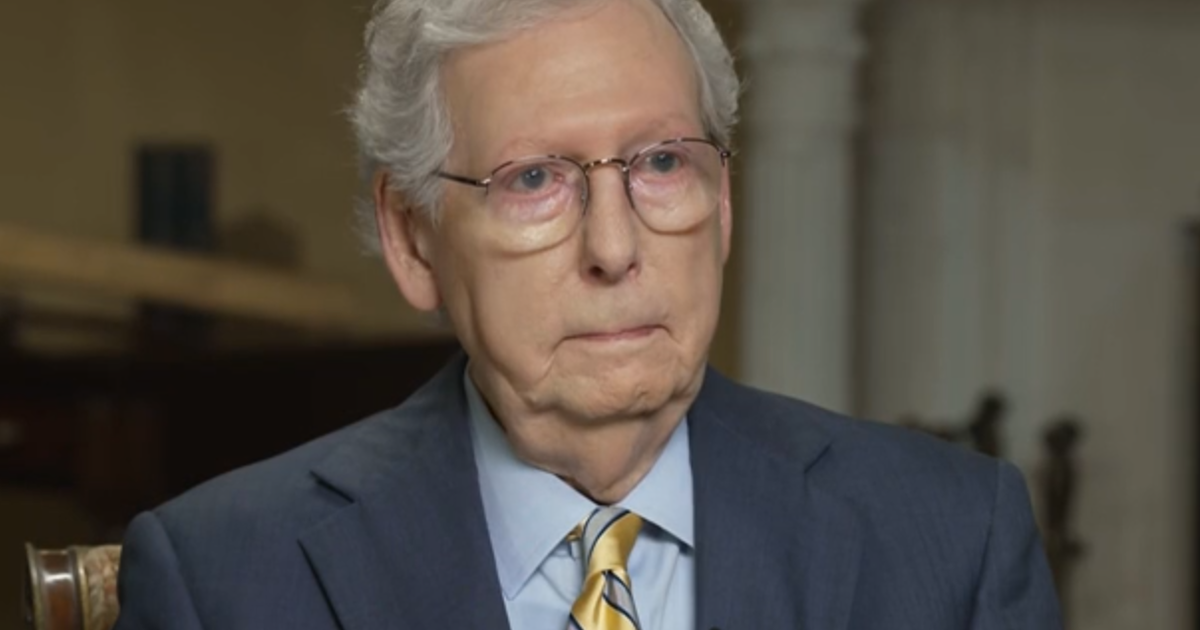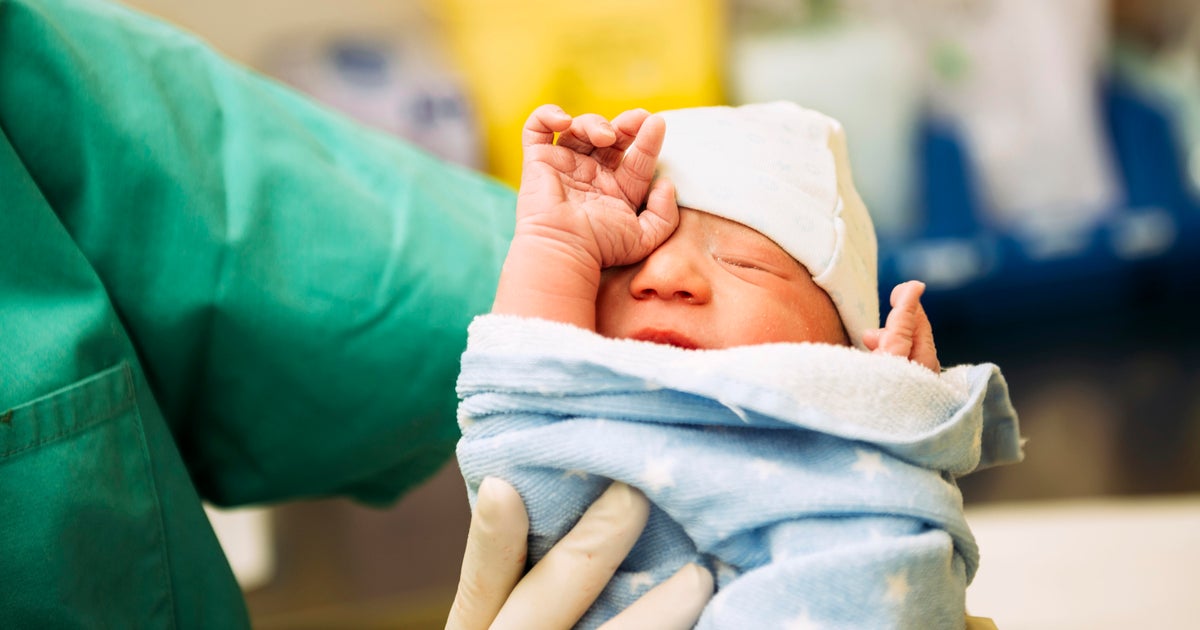4 things to know about coronavirus testing with Dr. Rajiv Shah of the Rockefeller Foundation
The Rockefeller Foundation, led by former USAID Administrator Dr. Rajiv Shah, recently launched an ambitious plan to drastically ramp up COVID-19 testing nationwide over the next few weeks.
The Foundation has a history of working on disease outbreaks and public health crises both in the U.S. and abroad and dating back to the 1918 Spanish flu epidemic.
Here's what to know about COVID-19 testing and how the Rockefeller Foundation is looking to change coronavirus' course:
1. Testing needs to drastically increase on a national scale with federal coordination
As of this past Sunday, May 3, the U.S. has done over 7 million tests during the last 2 months according to Johns Hopkins University researchers, which averages out at 1 million people tested per week since the pandemic kicked off in the U.S., though last week the US managed to conduct 1.7 million tests.
"We're at about one million tests per week. Today, we've been stuck at that level for three to four weeks now. But we're still far, far shy of where we need to be in order to open parts of the U.S. economy," he told "Face the Nation" moderator Margaret Brennan in an interview.
Drawing upon a consortium of experts from the science and medical industries, with backgrounds from both Republican and Democratic administrations, Shah says the Rockefeller Foundation's action plan "could get us from one million tests a week now, to three million tests per week within about eight weeks, and then to 30 million tests per week within about six months."
"The reason we need that higher level of testing is without testing, you really don't have data on who's positive. And when you don't have data, you can't drive a data driven pandemic response and you end up either reopening everything or shutting everything down," Shah said. "One strategy puts millions of lives at risk. Another strategy causes tens of millions of American households to be economically choosing between their own lives and their livelihoods and their ability to feed their children."
Shah said the Rockefeller Foundation's efforts, however, are just a "substitute" for what should be a coordinated national effort. Case in point: Several governors have expressed a desire for federal intervention with regards to testing and contact tracing efforts when it comes to coronavirus treatment on "Face the Nation" after struggling on their own with procuring tests for COVID-19.
"There absolutely needs to be coordination at the national scale," Shah told Brennan. "Whether it's coordinated by the federal government or right now the Rockefeller Foundation and its partners, including dozens of states and cities and even some Native American nations, are working together to try to bring together shared best practices, shared learning and procure supplies together so that we can access greater volumes of supply from an industry that's pretty fragmented and has not yet dramatically increased its production of these necessary test kits," he added.
2. America can implement a "boots on the ground" approach to community health, similar to Ebola effort
Dr. Shah told CBS News that the testing and contact tracing infrastructure that the Rockefeller Foundation is proposing to combat the coronavirus at home draws from lessons learned by the U.S. effort in combating Ebola.
"We beat Ebola in a very resource poor setting. We can beat coronavirus here, but we have to start being more focused and data driven and evidence based and our response," Shah noted.
The Foundation proposes hiring 100,000-300,000 people to create a community health corps as boots-on-the-ground to carry out diagnostic testing for COVID-19 here in the US, as well as to do contact tracing of those who have come into contact with infected individuals.
"When we were in West Africa in 2014, we got the testing time down from eight or nine days — to get a test result for someone that was the suspected Ebola carrier — to under four hours," Shall said.
"And we did that by deploying Department of Defense laboratories, using World Food Programme helicopters to transport blood samples by training a small army, almost 10,000 community health workers across West Africa to do the test testing and contact tracing."
"We, as Americans, know how to lead this kind of a response. And we're working with everyone who's willing to work with us to make it more effective here in the United States."
3. America has the technology and labs nationwide to make and mass process COVID-19 tests
Shah told Brennan that there will likely be a role for a serum antibody test used to identify if someone has COVID-19 or at least has some presumed immunity. "But we think it's still months away."
Of the more than 200 antibody tests currently on the market today, the FDA has granted emergency use authorization to only 12 tests. Most tests now in use were not reviewed by the agency. The antibody tests are viewed as a crucial part of reopening the economy, but some have been troubled by accuracy concerns in the rush to get to market.
The White House last week acknowledged the issue, advising that multiple antibody tests should be used to access the spread of the virus, which has infected more than a million Americans and killed nearly 69,000.
"Before we even get to that, we have to fix diagnostic testing in America. Otherwise, we're stuck between either total lockdown or complete risk taking, neither of which will work for Americans," Shah said. We can get from one to three million COVID-19 diagnostic tests per week with the technology we already have today, he explained, from the nasal swab based tests to the newer saliva tests. "But to do that, we need to unlock the two thirds of Americans molecular testing capacity that exists in university labs, in research labs, in small labs around the country that are currently not being utilized to their full extent."
"We have proposed that every state create an emergency operations center to track on a day to day basis the excess capacity for molecular testing that exists in their labs and direct people making requisitions to those labs," Shah added. "Often you just need the data and visibility and I.T. connectivity to those labs so that they can be part of the solution as opposed to just being underutilized when we desperately need them."
4. What does the White House have to say?
Shah says the Trump administration has been in talks with Rockefeller about their approach, telling Brennan, "We are coordinating our efforts with the relevant departments in the federal government, with states and with localities."
The Foundation consulted scientists, industry leaders, manufacturers now tasked with scaling up tests to a national level which they've never done before, and mayors of major cities and states to help come up with the plan. It has been working with majors and governments in Boston, Detroit, Los Angeles, Miami, and New Orleans, and also the Navajo Nation and the White Mountain Apache Tribe.
Shah noted, however, that "the reality is, you know, now's not a time for partisanship. We just want to be helpful in serving the American people."



